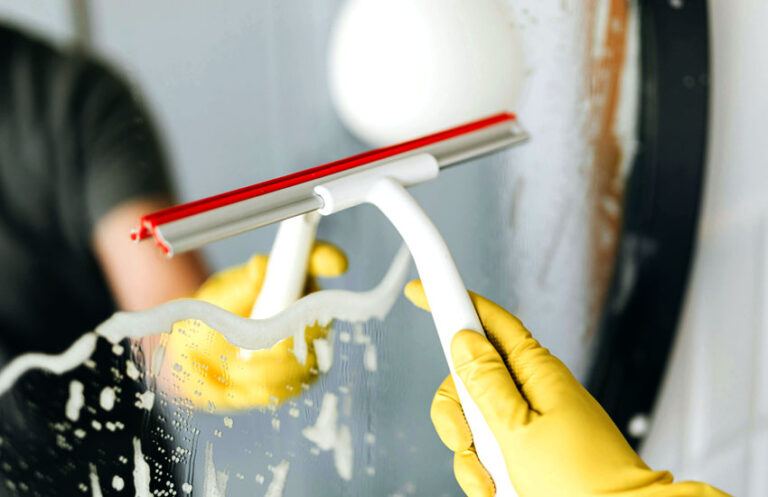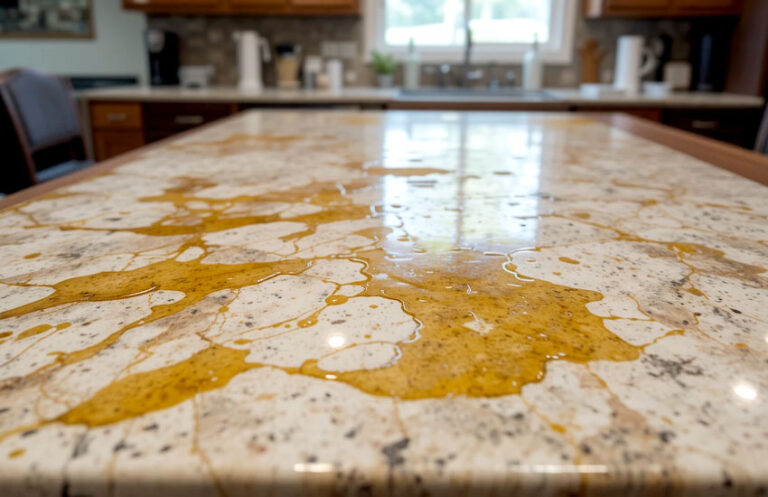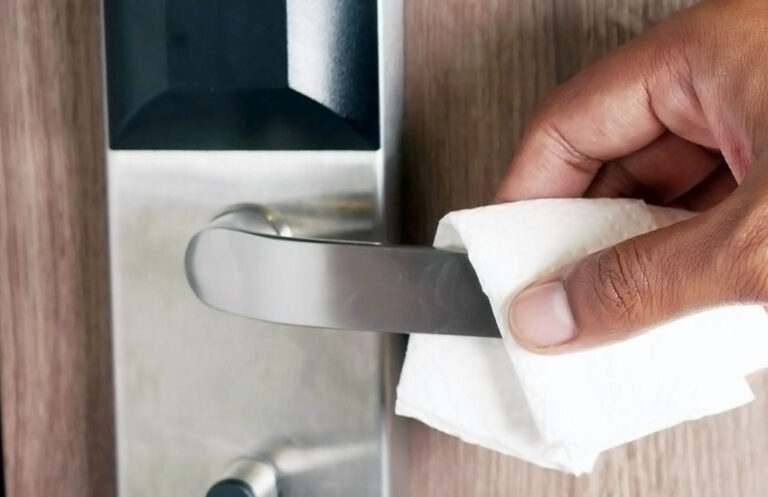As an Amazon Associate, I earn from qualifying purchases at no extra cost to you.
8 Ways to Clean Your Kitchen Surfaces Without Toxic Chemicals
Are you tired of using harsh chemicals to clean your kitchen surfaces? Not only do they leave a lingering smell, but they can also be harmful to your health and the environment. Fortunately, there are natural alternatives that are just as effective and much safer. Let’s dive into eight natural ways to clean your kitchen surfaces without toxic chemicals. Trust me, your kitchen will thank you!

1. Vinegar and Water: The Dynamic Duo
When it comes to natural cleaning, vinegar is like a superhero. This humble kitchen staple is a powerhouse when combined with water, making it a fantastic all-purpose cleaner. The best part? It’s super affordable and probably already in your pantry.
How to Use: Mix equal parts of white vinegar and water in a spray bottle. Shake it up, and you’re ready to go! This solution works wonders on countertops, stovetops, and even inside your microwave. Spray the solution on the surface, let it sit for a few minutes, and then wipe it away with a clean cloth or sponge.
Why It Works: Vinegar is acidic, which helps to break down grime, grease, and bacteria. It’s also great for cutting through hard water stains and soap scum. The smell of vinegar might be strong initially, but it quickly dissipates, leaving your kitchen surfaces sparkling clean and odor-free.
Pro Tips:
- For tougher stains, sprinkle some baking soda on the surface before spraying the vinegar solution. The fizzy reaction will help lift the grime.
- Add a few drops of your favorite essential oil to the vinegar solution to give your kitchen a pleasant scent.
2. Baking Soda: The Gentle Abrasive
Baking soda isn’t just for baking; it’s also an excellent natural cleaner. Its gentle abrasive properties make it perfect for scrubbing away stubborn stains without scratching your surfaces.
How to Use: Create a paste by mixing baking soda with a small amount of water. Apply the paste to the surface using a sponge or cloth, scrub gently, and then rinse with water. For an extra boost, pair baking soda with vinegar. This combo is especially effective for cleaning sinks and stovetops.
Why It Works: Baking soda is mildly alkaline, which helps to neutralize acids and break down grease. Its fine particles provide the scrubbing power needed to tackle tough stains without damaging your surfaces.
Pro Tips:
- Sprinkle baking soda on a damp sponge for a quick and effective cleaner.
- Use baking soda to freshen up your kitchen drain. Pour a cup of baking soda down the drain, followed by a cup of vinegar. Let it sit for 10-15 minutes, then flush with hot water.
3. Lemon Juice: Nature’s Bleach
Lemon juice is another fantastic natural cleaner that’s probably already in your kitchen. Its acidic nature makes it a powerful disinfectant and stain remover. Plus, it leaves behind a fresh, citrusy scent.
How to Use: Squeeze the juice of a lemon into a spray bottle and fill it with water. Spray the solution onto your kitchen surfaces, let it sit for a few minutes, and then wipe it away with a clean cloth. You can also cut a lemon in half and use it directly to scrub surfaces, like cutting boards or stovetops.
Why It Works: Lemon juice contains citric acid, which is effective at breaking down grease, stains, and bacteria. It’s particularly great for removing hard water deposits and rust stains.
Pro Tips:
- Combine lemon juice with baking soda for an even more powerful cleaner.
- Use leftover lemon peels to scrub sinks and faucets. The oils in the peel add an extra layer of cleaning power.
4. Castile Soap: The Versatile Cleaner
Castile soap is a plant-based soap that’s free of synthetic detergents and animal fats. It’s incredibly versatile and can be used to clean just about anything in your kitchen.
How to Use: Mix a few drops of Castile soap with water in a spray bottle. This solution is great for cleaning countertops, cabinets, and appliances. For a more concentrated cleaner, use the soap directly on a sponge or cloth.
Why It Works: Castile soap is gentle yet effective, making it safe for all surfaces. It cuts through grease and grime without leaving any toxic residue.
Pro Tips:
- Add a few drops of essential oils to the soap solution for a pleasant scent.
- Use Castile soap to clean your kitchen floors. Mix a few tablespoons with a gallon of water and mop as usual.
5. Hydrogen Peroxide: The Powerful Disinfectant
Hydrogen peroxide is a natural disinfectant that can be used to clean and sanitize your kitchen surfaces. It’s particularly effective at killing bacteria and viruses.
How to Use: Pour hydrogen peroxide into a spray bottle and use it to spray down your kitchen surfaces. Let it sit for a few minutes before wiping it away with a clean cloth. For added cleaning power, combine hydrogen peroxide with baking soda to create a paste for scrubbing stubborn stains.
Why It Works: Hydrogen peroxide is a strong oxidizer, which means it breaks down the cell walls of bacteria and viruses, effectively killing them. It’s also great for whitening and brightening surfaces.
Pro Tips:
- Use hydrogen peroxide to clean cutting boards and utensils. Spray it on, let it sit, and then rinse with water.
- Store hydrogen peroxide in a dark bottle to prevent it from breaking down in light.
6. Essential Oils: The Natural Fragrance
Essential oils are not only great for adding a pleasant scent to your cleaning solutions, but many also have antibacterial and antiviral properties. Some of the best oils for cleaning include tea tree, lavender, eucalyptus, and lemon.
How to Use: Add a few drops of essential oil to your vinegar and water solution, Castile soap mixture, or baking soda paste. This will enhance the cleaning power and leave your kitchen smelling fresh.
Why It Works: Essential oils contain natural compounds that have antimicrobial properties. They can help to kill germs and bacteria while adding a delightful fragrance to your kitchen.
Pro Tips:
- Mix a few drops of essential oil with water in a spray bottle for a quick and easy air freshener.
- Use essential oils to clean and deodorize your garbage disposal. Add a few drops directly into the disposal and run it with some water.
7. Olive Oil: The Polishing Agent
Olive oil isn’t just for cooking; it’s also an excellent natural cleaner and polisher. It can be used to remove grime, shine surfaces, and even condition wooden utensils and cutting boards.
How to Use: For polishing, apply a small amount of olive oil to a cloth and buff the surface until it shines. To clean and condition wooden items, mix equal parts olive oil and lemon juice, apply it to the wood, and let it soak in for a few minutes before wiping off the excess.
Why It Works: Olive oil helps to break down grease and grime while adding a protective layer that makes surfaces shine. It’s also great for conditioning wood, keeping it from drying out and cracking.
Pro Tips:
- Use olive oil to remove sticky residue from labels or stickers. Apply a small amount to the residue, let it sit, and then wipe it away.
- Add a few drops of olive oil to your cleaning cloth to help pick up dust and dirt more effectively.
8. Club Soda: The Effervescent Cleaner
Club soda is a surprising but effective natural cleaner. The carbonation helps to lift dirt and grime, making it a great option for cleaning kitchen surfaces.
How to Use: Pour club soda directly onto the surface or into a spray bottle. Use a cloth or sponge to scrub the area, then wipe it away with a clean cloth. It’s particularly effective on stainless steel and glass surfaces.
Why It Works: The bubbles in club soda help to loosen and lift dirt and grime, making it easier to clean. It also leaves a streak-free shine on surfaces.
Pro Tips:
- Use club soda to clean your refrigerator shelves and drawers. Pour it on, scrub, and wipe away for a sparkling clean.
- Club soda is also great for removing stains from upholstery and carpets. Pour it on the stain, blot with a cloth, and repeat as necessary.
I hope this guide has inspired you to ditch the toxic chemicals and embrace natural cleaning methods in your kitchen. Not only are these methods effective, but they’re also safe for you, your family, and the environment. Give them a try, and you’ll be amazed at how well they work. Happy cleaning!
Are These Questions in Your Mind?
Is it safe to use vinegar on all kitchen surfaces?
Yes, vinegar is safe for most kitchen surfaces. However, avoid using it on natural stone surfaces like granite or marble, as the acid can etch the stone.
Can I use essential oils around food preparation areas?
Yes, essential oils are generally safe to use around food preparation areas. Just make sure to use food-grade oils and avoid contact with food.
Do I need to rinse surfaces after cleaning with natural cleaners?
It depends on the cleaner. For vinegar and water solutions, a quick wipe with a damp cloth is usually sufficient. For more concentrated cleaners like baking soda paste, rinsing is recommended.
Is hydrogen peroxide safe for cleaning kitchen surfaces?
Yes, hydrogen peroxide is safe and effective for cleaning kitchen surfaces. It kills bacteria and viruses without leaving harmful residues.
Can baking soda scratch my countertops?
Baking soda is a gentle abrasive and is unlikely to scratch most countertops. However, always test on a small, inconspicuous area first to be sure.
Do I need to dilute Castile soap for cleaning?
Yes, it’s best to dilute Castile soap with water to make an effective cleaning solution. A few drops in a spray bottle of water should suffice for most surfaces.
Is it okay to mix natural cleaners together?
Yes, many natural cleaners can be combined for increased effectiveness. For example, vinegar and baking soda make a great cleaning duo. However, avoid mixing hydrogen peroxide with vinegar, as it can create harmful fumes.
Can I use olive oil on all types of wood?
Olive oil is safe for most types of wood, but always test on a small area first. It helps condition the wood and keep it from drying out.
Do I need to refrigerate homemade natural cleaning solutions?
Most natural cleaning solutions do not need refrigeration, but they should be stored in a cool, dark place to maintain their effectiveness.
Is club soda just as effective as commercial glass cleaners?
Yes, club soda can be just as effective for cleaning glass surfaces. The carbonation helps lift dirt and grime, leaving a streak-free shine.





